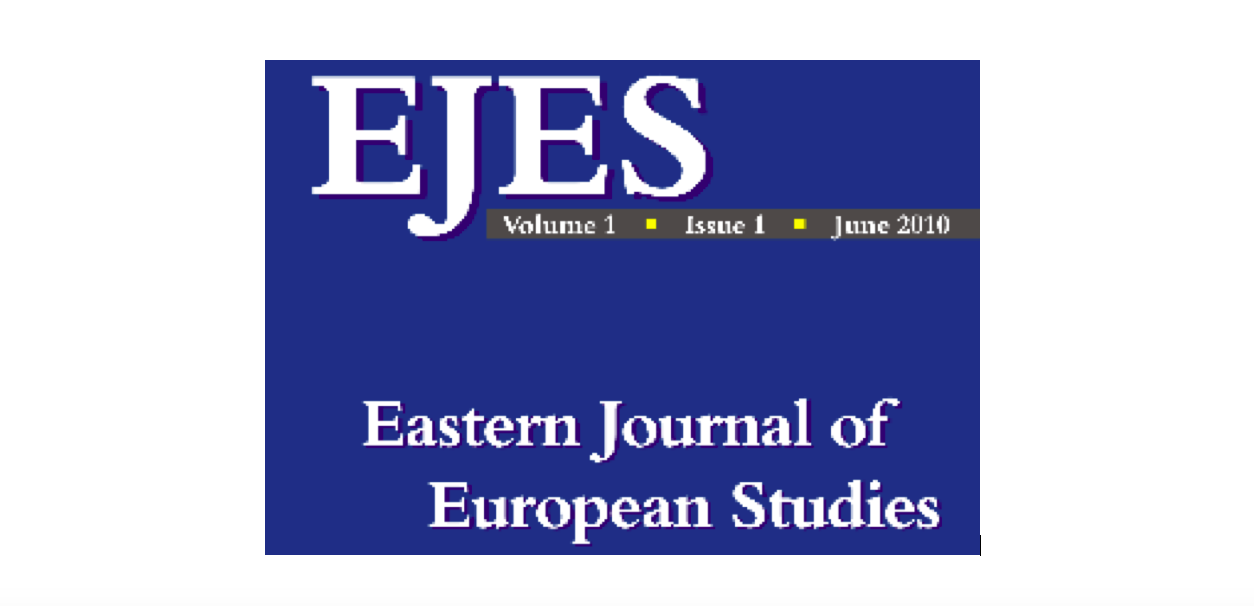Eastern Journal of European Studies
Eastern Journal of European Studies
Publishing House: Editura Universităţii »Alexandru Ioan Cuza« din Iaşi
Subject(s): Politics / Political Sciences, History of European Union, EU-Approach / EU-Accession / EU-Development
Frequency: 2 issues
Print ISSN: 2068-651X
Online-ISSN: 2068-6633
Status: Active
- 2010
- 2011
- 2012
- 2013
- 2014
- 2015
- 2016
- 2017
- 2018
- 2019
- 2020
- 2021
- 2022
- 2023
- 2024
- 2025
- Issue No. 1/1
- Issue No. 2/1
- Issue No. 1/2
- Issue No. 2/2
- Issue No. 1/3
- Issue No. 2/3
- Issue No. 1/4
- Issue No. 2/4
- Issue No. 1/5
- Issue No. 2/5
- Issue No. 1/6
- Issue No. 2/6
- Issue No. 1/7
- Issue No. 2/7
- Issue No. 1/8
- Issue No. 2/8
- Issue No. 1/9
- Issue No. 2/9
- Issue No. 1/10
- Issue No. 2/10
- Issue No. 1/11
- Issue No. 2/11
- Issue No. SI/11
- Issue No. 1/12
- Issue No. 2/12
- Issue No. SI/12
- Issue No. 1/13
- Issue No. 2/13
- Issue No. SI/13
- Issue No. 1/14
- Issue No. 2/14
- Issue No. SI/14
- Issue No. 1/15
- Issue No. 2/15
- Issue No. SI/15
- Issue No. 1/16
- Issue No. 2/16
- Issue No. SI/16
Articles list
{{ article.TitleOriginalLanguage }}
{{ article.TitleOriginalLanguage }}
({{ article.TitleEnglish }})
- Publication: {{ article.Publisher }} ({{ article.Issue }})
- Author(s): {{ article.Authors }}
- Contributor(s): {{ article.Contributors }}
- Language: {{ article.Language }}
- Subject(s): {{ article.Subjects }}
- Issue: {{ article.Issue }}
- Page Range: {{ article.PageRange }}
- No. of Pages: {{ article.NumberOfPages }}
- Keywords: {{ article.Keywords }}
- Summary/Abstract: {{ article.SummaryAbstract }}
- Price: {{ common.currency(article.Price) }}
Short Description
The Eastern Journal of European Studies (EJES) seeks to provide a forum for multidisciplinary and interdisciplinary dialogue between ideas, and a framework for theoretical and empirical analyses covering major topics in European studies: European history, politics, European economy and European policies, EU community law, European culture and society.
EJES encourages studies focusing on Central and Eastern Europe (including Eastern Neighbourhood) in order to better understand its transformations induced by the integration process and to address its specific challenges by supporting scientific debates on the general European theory and practice. Furthermore, the editorial board regularly invites distinguished guest editors to coordinate thematic issues.

